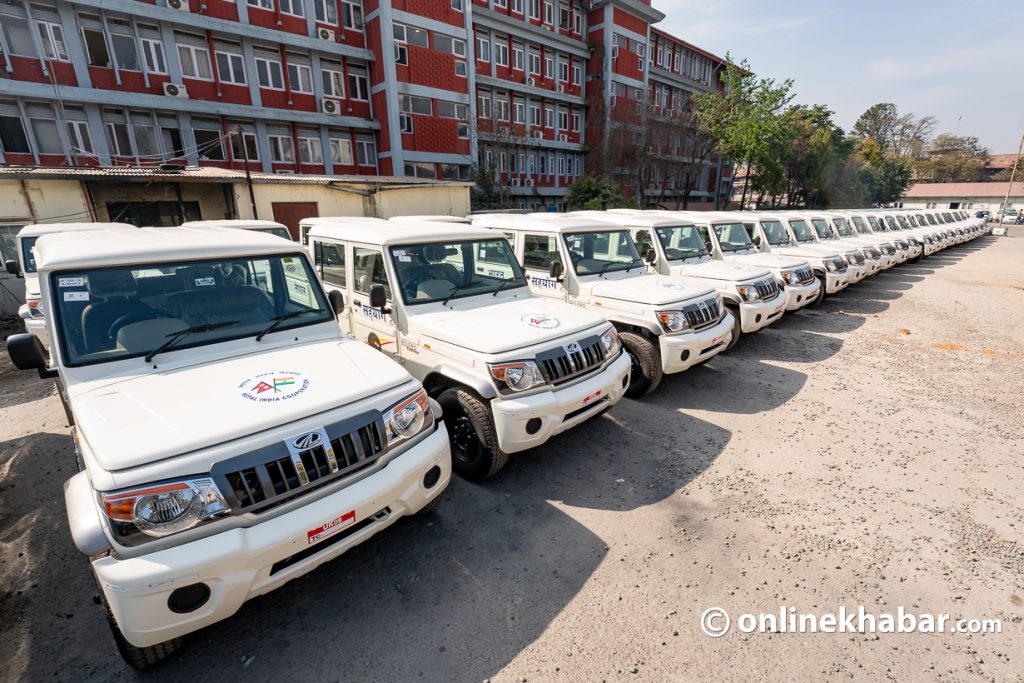The distribution of embossed vehicle registration number plates resumed in July 2020 after a judicial block since 2018. Nepal had endorsed the technology-laden number plate system in August 2017 after decade-long planning. As reported, the new vehicle registration system has several features. The number plates are digital, but they come with the radio frequency identification system (RFIS) – which can reveal users’ and the manufacturers’ identification and can also track the vehicles.
Though this system can handy for authorities in terms of maintaining digital records of vehicles running on the road, collecting revenue on time, controlling vehicle thefts, and also to rescue vehicle drivers and passengers in case of accidents, the drawback of this system is mass surveillance of general people and violation of their privacy.
Despite accepting privacy as a fundamental right since a long time, Nepal had its first legal document about the issue in the Privacy Act 2018 that ensured people’s rights to privacy. However, there is a major unaddressed question over the accountability of the state concerning the collection of a huge amount of information of the people.

The Department of Transportation Management (DoTM) has not provided any detailed information on its purpose of gathering personal information such as how such information is to be protected, as well as any assurance from misusing or any leaks. Motor Vehicles and Transport Management Act, 1997, does not have any provision of usage and security of information gathered for issuing driving licences and registering vehicles by the authoritative bodies assigned to issue such documents.
The Article 12(3) on Chapter 3 of the Privacy Act clearly states that “the data collected by a public body or body corporate upon obtaining the consent of the concerned person shall be used only for the purpose for which such data have been collected.” The bureaucratic bodies of Nepal are yet to adopt the Privacy Act into their systems, making the systems of collection of information either outdated or inadequate and, thus, susceptible to security threats.
As mentioned earlier, the digital embossed number plate system is a key to track a vehicle, and thus the movement of the people. Such a system can store huge amount of data, can track a large number of people, and, thus is a way of mass surveillance. From mass surveillance, the government can virtually keep a record of all aspects of citizens (in this case, the movement of the people), without any concern to whether they are legally suspected of misconduct.

Such system, as seen in most of the developed countries in the west, brings a major shift in power dynamics, giving the ruling entity an unaccountable increase in power, and has alarming effects on individual activities as such actions can be tracked and stored for later analyses. As such, the digital system can interfere with the rights to privacy.
Nationally and Internationally, mass surveillance is not a recent phenomenon. One of its oldest forms is national databases such as census, registering for citizenships, and driving licences. The Census Act of the early 1950s provides guidelines to enumerate the subjects and clearly states the administrative body which has the authority for registering, and that the information gathered will not be used for other purposes. However, the newer rendition in the form of the Citizenship Act, 2006, and Nepal Citizenship Rules, 2006, do not mention anything about the use and protection of the obtained information although they recognise the authorities that can issue citizenship. It showcases that even the recent batch of policymakers are not concerned regarding the right to privacy.

Due to rapid development in technology, mass surveillance can be conducted in more advanced manners through means of communications (mobile phone, internet, television), on which any personal data can be stored and accessed easily. Though monitoring mechanisms may have been set up to administer and control larger subjects, without addressing the security of privacy, any surveillance would be unaccountable. More and more information of our activities will be collected as we move forward to digital and ‘smart’ technologies, which will expose us to vulnerabilities.
The government must pay attention to preventing any violation of people’s privacy. It needs to incorporate the Privacy Act with the systems operated by the governmental bodies in collection and security of data. Furthermore, the government and the DoTM must ensure public that the new system of an embossed number plate is just a measure to simplify the day-to-day activities and is not a mean of mass surveillance.
It is not denied that this system can minimise crimes related or conducted with vehicles, but data of those uninvolved should not be stored unnecessarily, or be stored for the mentioned purpose only. In this case, the data should be highly protected from any kind of misuse.





















